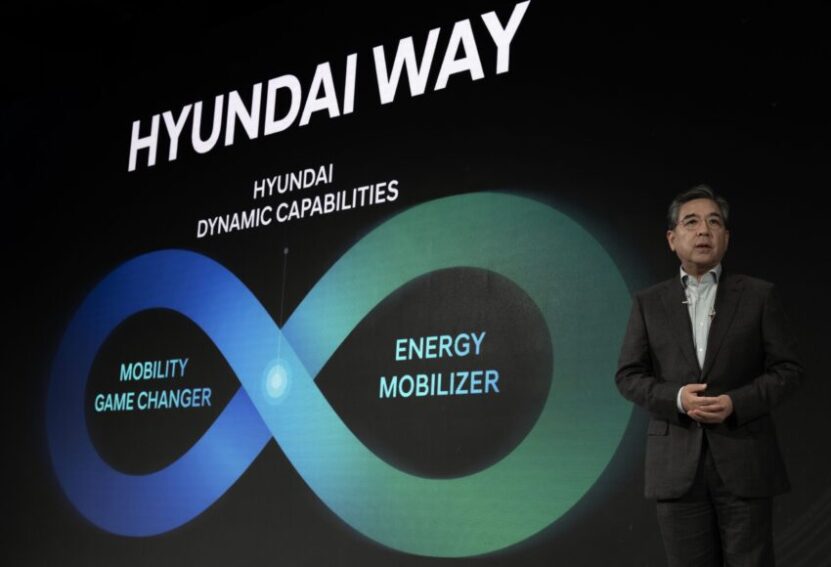Seven-seat Hyundai Ioniq 9 confirmed as firm lays out plan for 21 EVs by 2030
Hyundai has said it wants to sell two million EVs a year by 2030 via an expanded line-up of 21 models.
The Korean firm, which also owns Genesis, has just set out its medium-term plans, which include continuing its push towards EVs alongside developing hybrid and range-extender EVs for some markets.
Among the models confirmed for production by 2030 were the Ioniq 9 – a seven-seat SUV closely related to the Kia EV9 – and further high-performance N models.
At its 2024 CEO Investor Day. Hyundai announced the new ‘Hyundai Way’ strategy, which commits to enhancing its EV line-up, developing more affordable and safer battery technology and continuing work on hydrogen fuel cell technology for heavy industry and transport.
Key to its plan is to expand its electric car production and sales. The company’s current EV range consists of the Kona, Ioniq 5, Ioniq 5 N, Ioniq 6 and incoming Inster, along with the Genesis GV60 and electric versions of the GV70 and GV80.
By 2030 plans to grow this to 21 models worldwide ranging from affordable to high-performance and luxury cars. There will be more models from its N division along with the new Genesis Magma performance line.
At the same time, it says it is working on multiple battery technologies to make them cheaper, safer and more effective. By 2030, the company intends to use a new affordable NCM (nickel-cobalt-manganese) battery in large-volume models, alongside more expensive ‘performance-focused’ NCM cells and low-cost LFP (lithium-iron-phosphate) batteries. It expects a 20% improvement in battery performance over the same period.
Hyundai is also working on solid state batteries which should offer significant improvements in energy density, efficiency and durability, as well as faster charging speeds and more stable, safer construction.
And it is developing a cell-to-vehicle structure like BYD’s which will see the battery integrated into the car’s body for improved safety and weight saving.
Acknowledging a slowdown in sales of EVs in some markets, Hyundai also said it would be focusing on new hybrid models and technology to bridge the gap until 2030, which it expects a recovery in EV demand. In markets such as the USA, where demand for ICE remains high, and China, where low prices are vital, range-extender EVs are seen as a cost-effective EV middleground.
A new generation of range-extender EVs which are powered by electric motors but use a small combustion engine to charge the batteries are seen as an important bridge to fully electric models and will offer up to 560 miles of driving range.
Jaehoon Chang, President and CEO of Hyundai Motor Company, said: “Under the Hyundai Way, we will respond to the market with agility thanks to Hyundai’s unique flexible response system. This will secure sustainable leadership in an uncertain market environment and strategically position the company to create a future centered on mobility and energy.
“Hyundai will strengthen its position as a game changer by expanding beyond vehicle manufacturing to various forms of mobility. By enhancing the role of energy business operators and realizing a hydrogen society, we intend to transform into a company that can maintain global top-tier leadership in the era of energy transition.”



